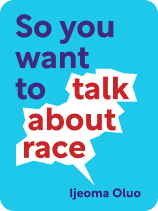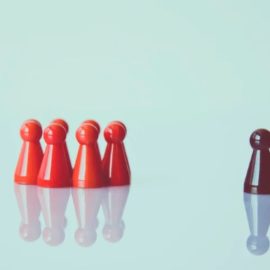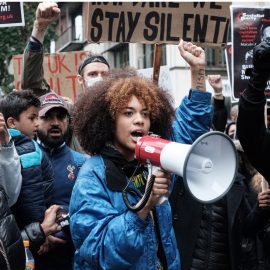

This article is an excerpt from the Shortform book guide to "So You Want to Talk About Race" by Ijeoma Oluo. Shortform has the world's best summaries and analyses of books you should be reading.
Like this article? Sign up for a free trial here .
What is tone policing and how does it relate to racism? What unconscious assumptions about race does tone policing reveal?
Tone policing is a series of strategies that turn the focus of a discussion from what someone is saying to how they’re saying it. In the context of racism, tone policing is actually a form of microaggression because silencing someone implies that they don’t have the right to be heard.
Read about tone policing and how it relates to and perpetuates racism.
Tone Policing and Racism
Tone policing is a way of talking that puts the emphasis on how something is said instead of the actual content of the message. Tone policing takes the form of comments like “Okay, calm down,” “Anger won’t get us anywhere,” or “Relax!”
As with microaggressions, you might not know you’re doing it. You might, for example, just think you’re trying to keep the conversation on an even keel. Or you might think you’re simply reminding everyone to be respectful.
But in reality, tone policing paints people’s justifiable emotions about the issues as being distracting or a turnoff. Tone policing is a form of implicit racism because silencing someone carries the message that they don’t have the right to be heard. And putting conditions on your listening asserts your right to control the behavior of people of color for your own benefit.
In the context of racism, tone policing springs from the belief that there are “right” and “wrong” ways to talk about race. The “right” way is to focus on peace, love, and idealism, to rise above the bitterness, be pleasant, and present your arguments mildly and with liberal sprinklings of “not all white people.” An example of someone who spoke about racism in the “right” way is Martin Luther King Jr. (In reality, this is a sanitized version of him and his philosophy.) The “wrong” way is to be angry and provocative and to make white people feel intimidated. Examples of people who talk about racism the “wrong” way are Malcolm X, Al Sharpton, and Jesse Jackson.
Often people refuse to listen to or engage with a person of color because they’re “inflammatory” or “too angry.” The stereotype of the angry black person makes it easy to minimize or dismiss people who are justifiably angry about their suffering and that of other people of color. If you dismiss this anger, you’re saying that only people of color who prioritize the comfort of white listeners deserve to be listened to. People of color who don’t prioritize white comfort don’t deserve to be listened to. They don’t deserve equality. But equality shouldn’t need to be earned through deference to white people’s emotional needs.
The idea that the acceptability of what someone says about race depends on the comfort level of the white listener harks back yet again to the history of slavery: The main priority for the white person is their own comfort, and the main priority for the person of color should be the comfort of the white person.
The assumed right to police to use tone policing on the people of color is linked to the assumed right to police the behavior of people of color. This perceived right to discipline and control is a form of implicit racism and it can present in more subtle ways too. For example, who polices the boundaries between acceptable and unacceptable in a conversation about race? Ask yourself: Who has the right to control whom? Who has to bend to whose wishes? Every time you are tone policing a person of color, you’re engaging in implicit racism and demonstrating that the White Supremacist system is still intact.
When you’re subject to tone policing, remember that:
- Your emotions are natural and justified. Don’t let anyone tell you not to feel angry, sad, or afraid. Your truth is valid and your experiences matter.
- You have the right to be heard.
- You do not have to earn your humanity. You deserve to be heard. You deserve to be cared about.
- You decide how you’ll fight for justice. Nobody else has the right to tell you what to do or control the way you do it.
- You don’t need anyone’s validation. If someone tries to make you earn legitimacy through the way you express yourself, this is abuse.

———End of Preview———
Like what you just read? Read the rest of the world's best book summary and analysis of Ijeoma Oluo's "So You Want to Talk About Race" at Shortform .
Here's what you'll find in our full So You Want to Talk About Race summary :
- How to have an intelligent, empathetic conversation about race
- Why people are afraid to talk about race
- Where racism came from and what fuels it






